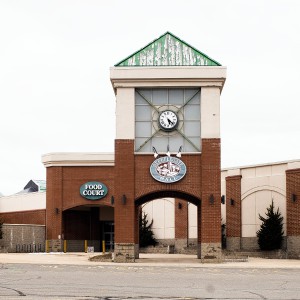Vintage views: Goodness and Hope ~ 1832

An early view of Main Street Concord during an era of goodness and hope. James W. Spain Collection
| Published: 11-04-2023 11:00 AM |
As our ancestors settled into the year 1832 in Concord, they were provided much information each morning by the New Hampshire Patriot and State Gazette. The people of Concord would rise early and complete their chores, gather in their offices to address the everyday concerns, open their shops down on Main Street and read the newspaper so that they would be informed, for with information they felt safe, secure and even mildly entertained at times.
In the year 1832 the people that inhabited our little town of Concord read with interest that Charles Carroll, the last surviving signatory of the Declaration of Independence passed away at the age of 95 at his home in Maryland. They read about the Black Hawk War, Jacksonville, Florida being chartered and a gentleman named Benjamin Bonneville leading the very first wagon train across the Rocky Mountains at the south pass. There was news from Europe and the people of Concord held concern about the various epidemics and pandemics currently in Europe, for the people of Concord had experienced sickness in our town as far back as the 1700s with smallpox and influenza.
With much concern for the people in our community, the concern of sickness was monitored by both the people, and the officials here as well as in other locations in the United States. During the early months in 1832 there was much mentioned about Asiatic Cholera in Europe and it was this fear that our ancestors lived as each new month arrived. If this sickness arrived it must be addressed to keep the people safe.
During the month of June, 1832, the news of widespread sickness and death arriving each day from across Europe was now close to our home in Concord. There was news of the spread of the infection, cholera had crossed the Atlantic Ocean and was well documented not far away to the north in Canada. The people to the north were simply ravaged at this time, the concern was very near and very real. It was common during this era to travel from Canada to Boston to book passage on a ship sailing to Europe. The people of New Hampshire lived with the fear that a person infected with cholera might pass through Concord en route to Boston and spread the disease locally.
The citizens of Concord gathered and signed a petition so that this concern could be addressed by local lawmakers. The politicians agreed and called a town meeting on July 9, 1832 to address the concerns of the Concord community. The people desired a board of health as well as a plan to address anyone arriving locally that might be ill. So, it was on July 9, 1832 the people of Concord established and appointed a board of health consisting of Richard Bradley, Joseph Stickney, Laban Page, Thomas Chadbourne, Ezra Carter, Peter Renton, Elijah Colby, Samuel Morrill, Thomas Brown and J.T. Gilman Leach. This newly formed Concord board of health now had the authority to both address and accommodate those in need of assistance as a result of cholera or any other disease that might develop and threaten the people in our community. A budget was established in the amount of $500 to fund the new board of health and meetings were held with regular updates from the board to the citizens.
By establishing this organization on July 9, 1832, the people were satisfied with a plan in place. With cholera now in New York City to the south and Canada to the north, the people of Concord at least had a plan to address concerns before their family, friends and neighbors became ill. If indeed anyone in Concord did become ill there were additional provisions for isolation to help manage the spread of the infection.
Much like today, the people living in Concord in 1832 felt the fear and anxiety from unknown ailments. They sought comfort and the local officials responded. The people of this era were very much like we are today, with fear and a desire for comfort. They came together and helped each other, perhaps a little more than they might have once.
Today, just like during the summer of 1832, people live in a similar manner. We have isolated, but we still check on our neighbors from afar. We have found great comfort and joy in helping those in need perhaps a little more than usual. The people of Concord look after the young and the elderly a little closer. People walking our streets here in Concord today still walk in the shadows of our ancestors with much concern for those in need in their thoughts and an abundance of compassion in their hearts. Togetherness was as important to our ancestors 191 years ago as it is today. I’m proud to be a member of this community where we care for those in need today, for there is still goodness and hope.
Article continues after...
Yesterday's Most Read Articles
 Youth rally against New Hampshire’s bill allowing medical aid in dying
Youth rally against New Hampshire’s bill allowing medical aid in dying
 As site testing begins on new middle school site, activists file to put location debate on the ballot
As site testing begins on new middle school site, activists file to put location debate on the ballot
 Lawyers and lawmakers assert the Department of Education is on the verge of violating the law
Lawyers and lawmakers assert the Department of Education is on the verge of violating the law
 A May tradition, the Kiwanis Fair comes to Concord this weekend
A May tradition, the Kiwanis Fair comes to Concord this weekend
 Neighboring landowner objection stalls Steeplegate redevelopment approval
Neighboring landowner objection stalls Steeplegate redevelopment approval
 State senator passes out on senate floor
State senator passes out on senate floor







 Concord planning board approves new casino zoning
Concord planning board approves new casino zoning Barrington entrepreneur giving new life to single-use plastic
Barrington entrepreneur giving new life to single-use plastic For the first time, education commissioner speaks publicly about minimum standards revision, but he faces skepticism
For the first time, education commissioner speaks publicly about minimum standards revision, but he faces skepticism Adam Montgomery sentenced to minimum 56 years on murder charges in young daughter’s death
Adam Montgomery sentenced to minimum 56 years on murder charges in young daughter’s death
